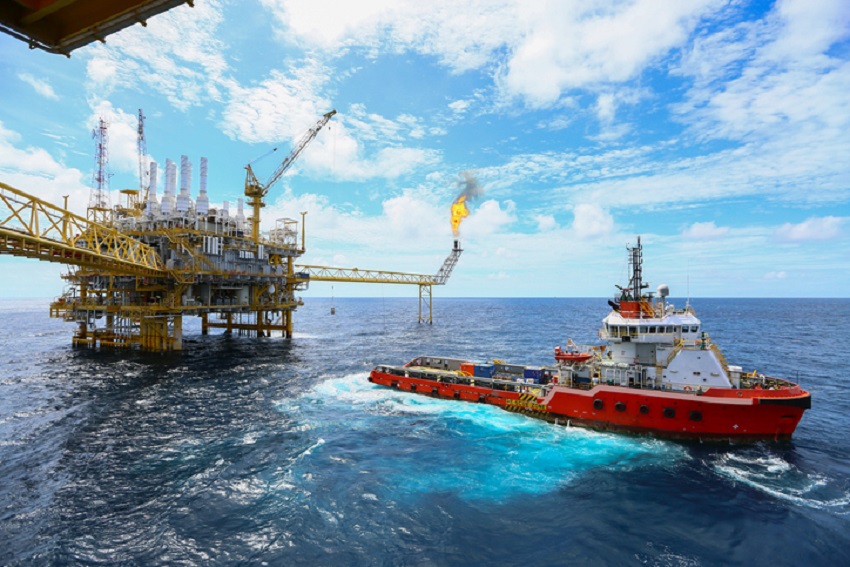With more than 70% of the earth’s surface covered by water and 90% of the world’s trade carried via ocean-going vessels, there is little doubt just how vital the maritime industry is to the global economy. The sector’s daily activities have a substantial impact on continuity and growth within the world’s major services, meaning the global economy is almost wholly dependent on ocean-going vessels and the industry that supports them. From cruise ships and cargo ships to tankers and military boats, it’s vital that any challenges or issues endangering continuity within the sector are resolved before they escalate and disrupt operations, which means marine services such as maritime engineering play a particularly important role in modern life.
So what is maritime engineering? And why does it play such a crucial role not just in the maritime industry, but in the global economy as a whole?
What is maritime engineering?
Also referred to as marine engineering, maritime engineering is the design, development, production, repair and maintenance of nautical equipment used at sea including boats, vessels, ships and submarines.
Since our oceans carry more than 90% of all global trade, even the smallest issue in the maritime sector can have far-reaching consequences. Maritime engineering plays an important role in the ongoing repairs and maintenance of vital infrastructure and equipment that ensures the industry can continue to function effectively.
The design, construction, and maintenance of ships and boats are most often the primary duties of a marine engineer. Maritime engineering deals predominantly with the production of larger vessels intended for the world’s merchant fleet, including cargo and passenger transport vessels, as well as infrastructure for the offshore energy industry. Maritime engineers also deal with the products and services supplied for the conversion, retrofitting and maintenance of vessels and ships, on top of the construction of new builds.
Duties include:
- Engineering & consultancy – Along with the conceptual design of a vessel, maritime engineers frequently plan, coordinate and oversee the building and engineering of the ship as well. This may also involve consulting services that help direct and guide a project.
- Conversion services – Engineers in the maritime industry also supervise the retrofitting, refitting and/or conversion of existing ships at sea or at a drydock.
- Repairs & maintenance – Marine engineers are also responsible for the maintenance and repair of ocean-going vessels and ships such as cargo ships, tankers and submarines.
From building new ships to retrofitting and repairing old vessels, maritime engineers are typically based in a centralised location and will assess projects and provide solutions using specialised software and other technologies. For testing or maintenance, they may occasionally travel out to sea and this is where the fields of underwater marine services and maritime engineering often amalgamate.
Underwater marine services
Maritime engineers are often responsible for underwater marine services, also known as subsea services and IRM services – or inspection, repair and maintenance. Services and tasks most often include:
- Inspections, repairs and maintenance fully submerged underwater
- Management of BWTS and scrubber installation projects
- Installation and maintenance of navigation, entertainment and communication systems
- Evaluation of offshore drilling platforms
- A variety of inspection services, including pre-purchase and condition inspections
- Inventory of hazardous materials
The importance of maritime engineering and subsea services
In the maritime industry, minimising downtime is essential. Like a cog in a well-oiled machine, any delay can affect global supply chains in addition to impacting productivity, efficiency and revenue. So in a nutshell, modern maritime engineering is important because it ensures the fleets of vessels are efficient and functioning correctly. Without it, important construction projects could not be completed, technological advancement in the sector would grind to a standstill, repairs and maintenance would not take place and the world as a whole would be far less connected.
Underwater marine services have been a particularly important component of the maritime engineering field. As a result of the hazardous and demanding environment in which the maritime industry operates, ocean-going vessels have to regularly pause their operations for repairs and maintenance. By choosing underwater services over conventional dry docking, for example, a ship can return to its regular day-to-day operations more quickly with fewer delays and losses in profitability than other more conventional maintenance solutions. As a result, the procedures and processes involved with inspections, repair and maintenance are now more efficient than ever, which has also reduced the need for any needless downtime associated with dry docking, off-hire or decommissioning.
The future of maritime engineering
The field of maritime engineering has evolved dramatically in recent years. This has been spurred on primarily by an increasing need for higher operational effectiveness while also reducing the maritime sector’s impact on the environment. As a result, sustainability is driving significant changes in the industry as well as its adoption of new technologies and concepts.
The future of maritime engineering looks like…
- More environmentally friendly practices and processes that prioritise sustainability
- Proactive repairs and maintenance including condition monitoring
- Improved fuel efficiency and less reliance on high-carbon fossil fuels
- A growing reliance on underwater marine services to improve efficiency
Conclusion
So why is maritime engineering so important?
Every year our oceans are utilised to transport a significant portion of the world’s global trade. With many economies entirely reliant on the maritime sector, it is of paramount importance that any challenges threatening operational continuity in the maritime sector are prevented or at least resolved before they escalate.
Even the smallest disruption in the maritime sector can have far-reaching consequences. As a result, operational continuity in the industry is vital in preventing worldwide catastrophe and panic, as well as continuity in the global economy. Consequently, maritime engineering is hugely important in today’s society. Its contribution should not be overlooked.



Leave a Reply